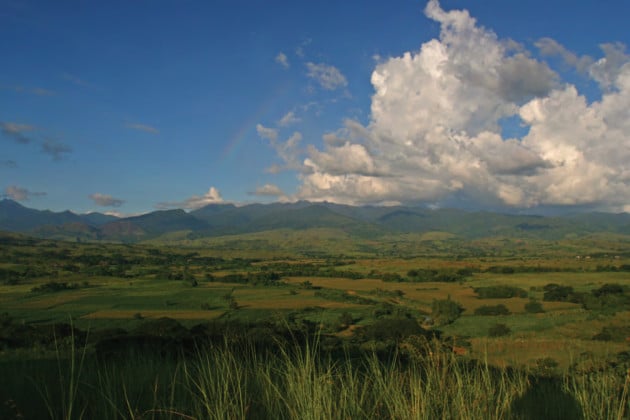Languages That Don’t Use Left or Right
I recently wrote an article titled Does Geography Influence Language about a certain sound called an ejective that exists primarily in locations of extreme high altitudes. The implication behind the article was that the climate directly influenced the nature of the language. As it turns out, this is not the only example of a language’s whereabouts being the basis of its structure.
Another way that geography influences language is in the description of space. When English speakers need to give directions, we tell someone to go straight and then go left or right. This is called egocentric system of coordinates. But in some languages, front, back, left, and right simply does not exist. Instead, directions are given using compass points and geographical landmarks. So instead of standing to the left of your neighbor, you would instead stand to the north, south, east, or west of her. These are known as geographic languages.
Where to Find Geographic Language
Guugu Yimithirr, an aboriginal language from North Queensland, Australia, was the first language to be discovered that is like this (Sidenote: Guugu Yimithirr is the source language for the word “kangaroo”). The original territory of the Guugu Yimithirr tribe was bordered by the Jeannie River to the north, and the Annan River to the south. The language was designed around the limits of its borders, and the users of said language depended on these two landmarks for orientation.
Since its discovery, additional studies have revealed a number of other languages around the world that also have this feature. There is the Sambali language spoken in the Zimbale province of the Philippines, which is bordered by a mountain range to the east and the West Philippine Sea to the west. The towns here are aligned north to south and the mountain range is visible from all parts of the province. Other countries with languages that have this feature include Polynesia, Mexico, Namibia, and Bali.
Speculations on How This May Influence Perspective
We, as users of the egocentric system, have trouble wrapping our minds around this concept simply because we don’t use it. Our description of space is based in our own personal bodies, but not on the things around us. But what really makes this feature interesting is just how dependent it is on its geography. Imagine, for example, if someone who actually does use geographic language, tries to travel to another part of the world that also uses it. They would struggle as much as we would to follow directions, because they would not be familiar with the local landmarks. The people of the Zimbale province know where the mountain range is, thus they know where east and west is. But if they travel to Australia, they would have to adjust before they could communicate.
If you’re interested in learning about one of the languages that is unifying the world, be it Spanish, French, Russian, Mandarin, Japanese, etc., Language Trainers may be your ticket to success. Contact us now so we can help you get started!


